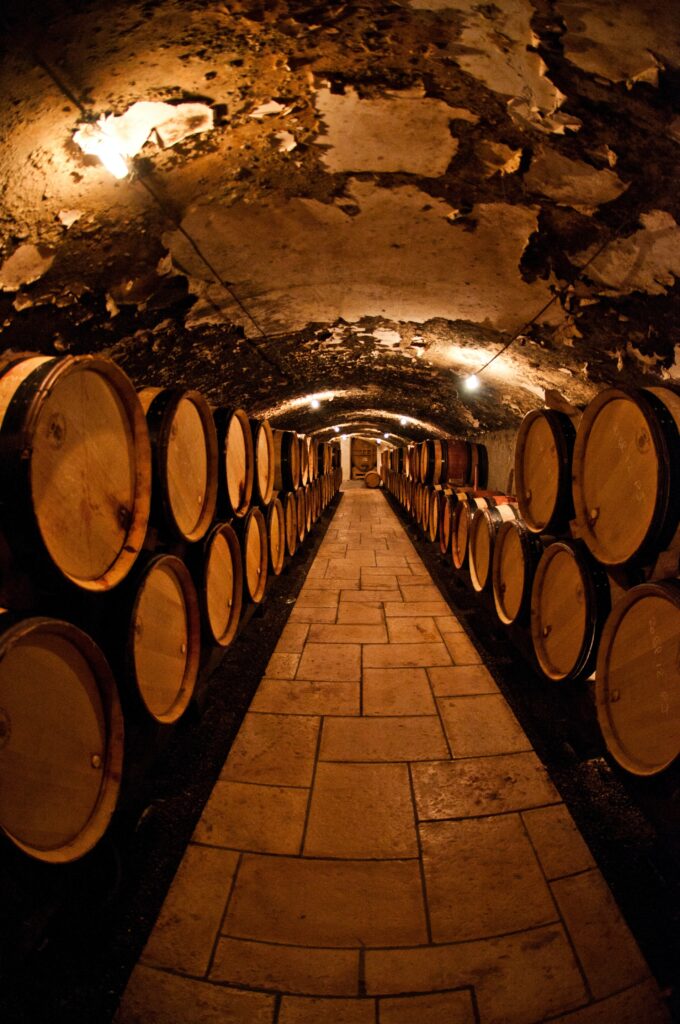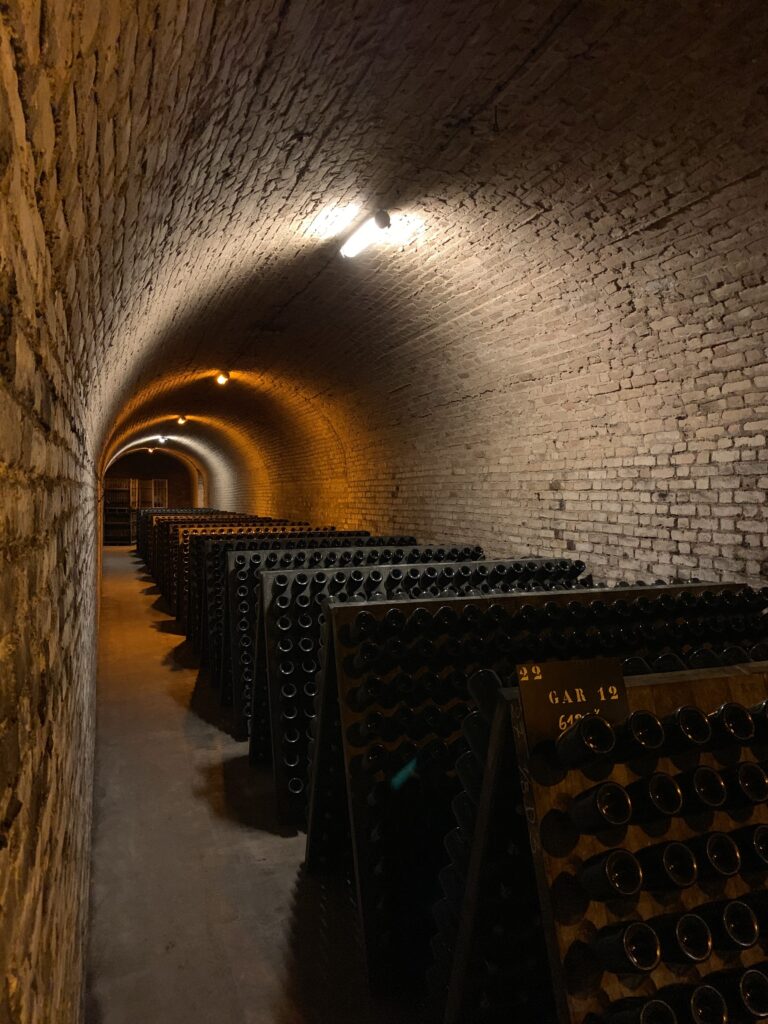Hey! So you’ve got a wine fridge, and you’re wondering whether it’s okay to store beer in it? Well, the good news is that you totally can! Wine fridges are actually quite versatile and can be used to store more than just wine. As long as your beer bottles fit in the fridge and you can keep them at the desired temperature, there’s no problem at all.
The important thing to consider here is the temperature. Beers are typically best enjoyed when chilled, so make sure your wine fridge can maintain the temperature range you prefer for your beer. Some wine fridges have adjustable settings, allowing you to set the perfect temperature for your cold brews. So go ahead, feel free to stock up on your favorite beers and keep them chilled and ready to enjoy in your wine fridge. Cheers!

Understanding the difference between beer and wine storage
When it comes to storing beverages like beer and wine, it is essential to understand the differences in optimal temperatures, the effects of light exposure, and the impact of humidity. These factors can greatly affect the taste, quality, and lifespan of your favorite libations.
Differentiating the optimal temperatures
Beer and wine have different temperature requirements for optimal storage. Beer is generally best stored at colder temperatures, while wine prefers a slightly higher range. By understanding these optimal temperatures, you can ensure that your beverages retain their flavors and qualities.
Knowing the right temperature for beer storage
Beer storage temperature can greatly impact its taste and quality. Different types of beer have varying ideal temperature ranges, and it’s important to keep them in mind when storing your favorite brews.
Ideal temperature for ales
Ales are typically best stored at temperatures ranging from 45-55°F (7-13°C). These beers, including pale ales, India pale ales (IPAs), and stouts, benefit from slightly cooler temperatures to maintain their flavors and prevent them from becoming overly carbonated.
Ideal temperature for lagers
Lagers, on the other hand, prefer slightly colder temperatures. Most lagers, including pilsners and bocks, are best stored around 38-45°F (3-7°C). Keeping them at these temperatures helps preserve their delicate flavors and prevents them from spoiling.
Adjusting temperature for strong beers
Some stronger beers, such as barleywines or Belgian ales, may require slightly higher temperatures due to their higher alcohol content and complex flavors. It is generally recommended to store these beers between 50-55°F (10-13°C) to allow the flavors to develop properly.
How a wine fridge operates
To better understand the potential for storing beer in a wine fridge, it is important to understand how wine fridges operate. These specially designed refrigerators cater to the specific needs of wines and can offer insights into their suitability for beer storage.
Understanding the temperature range
Wine fridges are designed to maintain a consistent and controlled temperature range, typically between 45-65°F (7-18°C). This temperature range is optimal for wine storage, allowing the wines to age gracefully and develop their desired flavors. However, it may not meet the colder temperature requirements for beer storage.
How it handles humidity
Wine fridges also provide a controlled humidity environment, which is crucial for preserving the quality of wines. The humidity levels typically range from 50-80%, ensuring that the corks remain moist and maintain an airtight seal. While this humidity range is beneficial for wines, it may not be as crucial for beer storage.
Dual zone vs single zone wine refrigerators
Wine fridges can be divided into dual zone and single zone configurations. Dual zone wine fridges have separate compartments with different temperature settings, allowing you to store both red and white wines at their respective optimal temperatures. Single zone wine fridges maintain a consistent temperature throughout the entire unit. However, these temperature settings may not accommodate the specific needs of beer.
Examining the benefits of storing beer in a wine fridge
While wine fridges are primarily designed for storing wines, they can offer some advantages for storing beer as well.
Proper cooling
One of the main benefits of storing beer in a wine fridge is the ability to maintain a consistent and controlled temperature. While it may not meet the ideal temperatures for certain beer styles, it can still provide a more stable environment compared to a regular refrigerator.
Greater capacity
Wine fridges are typically larger and offer more storage capacity compared to traditional beer fridges. This means you can store a larger variety of beer bottles or even keep different types of beverages in the same fridge.
Flexibility and convenience
If you are limited on space or already own a wine fridge, using it for beer storage can be a convenient solution. It allows you to have all your favorite beverages in one place, saving you from the hassle of acquiring an additional storage unit.

Weighing the downsides of storing beer in a wine fridge
While wine fridges can offer some benefits for storing beer, there are potential downsides to consider as well.
Possible temperature mismatches
As mentioned earlier, wine fridges may not meet the ideal temperature requirements for all beer styles. If you primarily enjoy beers that require colder storage temperatures, such as lagers or certain ales, a wine fridge may not provide the optimal conditions for these brews.
May not cater to beer bottle sizes and shapes
Beer bottles come in various shapes and sizes, and wine fridges may not be designed to accommodate these differences. This could result in limited storage options or difficulty arranging your beer bottles within the fridge.
Potential for over-cooling
If a wine fridge is set at its lowest temperature range, it may become too cold for some beer styles. Over-cooling can affect the carbonation and flavor profiles of beers, potentially diminishing the quality of your brews.
Investigating if all beer types can be stored in a wine fridge
The suitability of storing different beer types in a wine fridge depends on various factors, including the beer style, the desired aging process, and personal preferences.
Dealing with different types of beer
While some beer styles, like ales and lagers, can generally be stored in wine fridges with some adjustments, others may not fare as well. Stronger beers or those with unique aging requirements may require different temperature settings not typically achievable in a wine fridge.
Beer aging and the role of a wine fridge
Beer aging is a popular practice among beer enthusiasts, allowing complex flavors to develop over time. Wine fridges are not specifically designed for prolonged aging of beers, and their temperature ranges may not be suitable for this purpose. If you are an avid beer collector looking to age your brews, other storage options may be more suitable.
Effect of storage on beer taste
The storage conditions of beer can significantly impact its taste. Improper storage, such as exposure to excessive heat or light, can lead to flavor degradation and spoil the quality of your beer. While wine fridges provide better temperature control than regular refrigerators, they may not offer the same level of protection from other factors contributing to taste deterioration.

Evaluating alternative storage for beer
If a wine fridge does not meet your beer storage needs, there are alternative options to consider.
The traditional beer fridge
A traditional beer fridge is specifically designed for storing beers at ideal temperatures. It caters to the various shapes and sizes of beer bottles and often comes with adjustable temperature settings.
Cellaring beer
For those interested in aging their beers, cellaring offers a dedicated space for long-term storage. Cellars have the advantage of providing stable and cool temperatures while also offering protection from light and minimizing temperature fluctuations.
Beer storage cabinets
Beer storage cabinets combine aesthetics and functionality, providing a controlled environment for storing your valuable beer collection. These cabinets often come with temperature controls, adjustable shelves, and UV-resistant glass doors to protect your brews.
Comparing costs of using wine fridge for beer storage
When considering beer storage options, it is essential to evaluate the associated costs.
Initial cost of a wine fridge
Investing in a wine fridge may require a larger upfront expense compared to using a regular refrigerator or opting for dedicated beer storage units. The cost varies based on the size and features of the unit, so it is crucial to consider your budget and storage needs.
Energy consumption and efficiency
Wine fridges tend to be more energy-efficient compared to regular refrigerators. However, storing beer in a wine fridge may require lower temperatures than wine storage, potentially increasing energy consumption. It is important to weigh the energy costs against the benefits offered by a wine fridge.
Maintenance and lifespan expenses
Like any appliance, wine fridges require proper maintenance to ensure their longevity and functionality. Regular cleaning, replacing filters, and addressing any mechanical issues contribute to ongoing maintenance costs. Additionally, it is important to consider the lifespan of the fridge and factor in potential replacement costs in the future.
In conclusion, while wine fridges can offer some advantages for storing beer, it is important to consider the differences in optimal temperatures, the potential downsides, and the suitability for different beer styles. Ultimately, the decision of whether to store beer in a wine fridge depends on personal preferences, available storage options, and the desire to meet the specific storage needs of different beer styles.
